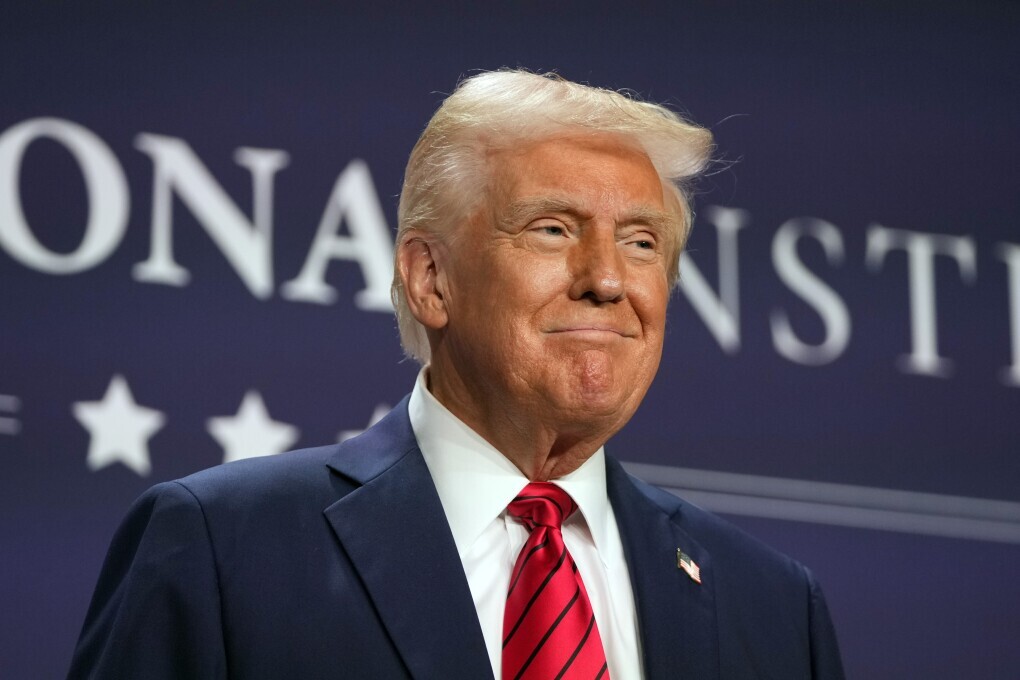- PE 150
- Posts
- $270B Cybersecurity Market, IT and Private Credit Boom, AI's Wake-Up Call
$270B Cybersecurity Market, IT and Private Credit Boom, AI's Wake-Up Call
This week, we dive into the critical intersection of cybersecurity and private equity, exploring how the growing $271.9 billion cybersecurity market is transforming from a defensive necessity into a strategic opportunity for safeguarding operations and driving investments.
Happy hump day, !
This week we dive into the critical intersection of cybersecurity and private equity, exploring how the growing $271.9 billion cybersecurity market is transforming from a defensive necessity into a strategic opportunity for safeguarding operations and driving investments.
Add-ons have consistently grown as a percentage of U.S. private equity buyouts since 2014, showing no signs of slowing down.
Private credit has become the preferred financing solution for middle-market firms, offering agility, customization, and confidentiality, but its success hinges on managing floating rates, high leverage, and economic risks.
NVIDIA sounds the alarm for AI innovation with a $600B wake-up call for Silicon Valley.
— PE150 Team
In this Issue:
📚 Data Dive
Turning Cybersecurity into a Competitive Advantage
The escalating threat of cyberattacks in a hyper-digitalized world has brought cybersecurity to the forefront of global business priorities. Nowhere is this more evident than in the private equity (PE) sector, where sensitive data, high-value transactions, and interconnected networks present a unique vulnerability landscape.
The market has grown from $83.32 billion in 2016 to an impressive $139.9 billion in 2021, reflecting the urgency with which businesses are prioritizing cybersecurity solutions. This exponential growth trajectory underscores the vital role cybersecurity plays in safeguarding sensitive data, infrastructure, and financial systems across sectors.
Looking ahead, the cybersecurity market is poised for continued expansion, with projections indicating a market size of $271.9 billion by 2029. This remarkable growth, averaging a compound annual growth rate (CAGR) of approximately 13%, is fueled by rising investments in advanced technologies such as artificial intelligence, cloud computing, and the Internet of Things (IoT)
Want to learn more?
Premium Perks
Since you are an Executive Subscriber, you get access to all the full length reports our research team makes every week. Interested in learning all the hard data behind the article? If so, this report is just for you.
|
📈 Trend of the week
Hiring Slowdown? Not for Fundraisers
Despite slower AUM growth in 2024, private capital firms are still bullish on talent. A Preqin survey shows 89% of firms plan to maintain or grow headcount this year. Demand for investment team roles remains high, though slightly eased (64% vs. 68% in 2023). Meanwhile, fundraising talent is having a moment—its share nearly doubled from 9% to 15% as firms pivot to securing LP commitments in a tougher capital-raising climate. Firms are recalibrating: hiring junior talent aggressively while showing restraint at the executive level.
Sponsored Content
Start learning AI in 2025
Everyone talks about AI, but no one has the time to learn it. So, we found the easiest way to learn AI in as little time as possible: The Rundown AI.
It's a free AI newsletter that keeps you up-to-date on the latest AI news, and teaches you how to apply it in just 5 minutes a day.
Plus, complete the quiz after signing up and they’ll recommend the best AI tools, guides, and courses – tailored to your needs.
💰Liquidity Corner
Liquidity Amplified: The Untapped Potential of Securitization in Private Funds
Securitization is emerging as a transformative solution to the liquidity challenges faced by private equity (PE) amid rising interest rates and constrained traditional fundraising. By bundling limited partner (LP) interests into special purpose vehicles (SPVs) and issuing rated debt notes, this innovative structure allows managers to inject liquidity into private markets while providing investors with tailored, debt-like exposure. High-profile transactions, such as AlpInvest's $1 billion collateralized fund obligation (CFO) in October 2024, underscore the growing adoption of securitization as a practical tool to address PE’s liquidity bottlenecks.
This transaction underscores the growing appeal of securitization structures, especially for institutions seeking favorable regulatory capital treatment compared to direct equity investments. Additionally, the global market for secondhand stakes in private funds reached a record $68 billion in the first half of 2024, a 58% increase from the same period in the previous year, indicating a robust demand for liquidity solutions in the private equity sector.
However, leveraging securitization requires overcoming significant operational and compliance challenges. The complexity of these vehicles demands robust back-office infrastructure, with the credit rating process involving detailed disclosures on financials, governance, and risk management strategies. Once launched, the ongoing management of CFOs and rated note feeders (RNFs) entails intricate fund accounting, tracking payment waterfalls, and maintaining compliance with risk retention thresholds, all of which can strain internal resources
🤝 Deal of the Week
Carving Out Success: HIG Buys Kantar Media for $1B
H.I.G. Capital acquired Kantar Media from Kantar Group for $1 billion, furthering private equity's influence in marketing. Bain Capital, which had prepped Kantar Media over two years, positioned it as a leader in media measurement across 60+ markets. The deal enables Kantar Media to focus on innovative solutions like Aquila, a cross-media audience panel, in the competitive race to rival Nielsen.
With HIG's expertise in scaling businesses and the marketing industry's trend toward consolidation, Kantar Media is poised to expand its AI-driven analytics and global media planning capabilities, signaling a performance-focused approach to growth.
As usual, advisors had their hands all over this one: J.P. Morgan and Jefferies led Bain’s charge, while Morgan Stanley & ING handled the buy-side. The deal highlights an ongoing theme—data-driven media assets are prime targets, but winning the measurement race is a whole different battle.
⭐ Viral Trend: AI Economics
DeepSeek Disrupts AI, Nvidia Pays the Price
Nvidia's $589 billion market cap loss on January 27 wasn’t just historic; it was a wake-up call. The culprit? DeepSeek, a Chinese AI startup that revealed a cost-efficient AI model rivaling top-tier systems. This innovation could rewrite the economics of AI development, leaving Nvidia's high-end chips in a precarious spot. The shockwaves hit Big Tech too, with Nasdaq dropping 3%. Sam Altman dubbed it a call to innovate or perish. For the U.S., it’s a Sputnik moment—both a threat and an inspiration to stay ahead in the AI arms race.
🏦 Private Credit Corner
Middle Market MVP: Private Credit’s Growing Role
Private credit has firmly established itself as the go-to option for middle-market firms that fall into the Goldilocks zone—too risky for banks but too small for public markets. With 41% of deal volume driven by IT, the sector’s agility is fueling high-growth industries. Speedy execution, custom terms, and confidentiality make private credit the financial equivalent of a Swiss Army knife. However, floating rates and high leverage mean borrowers are walking an economic tightrope. Staying transparent and managing downside risk will determine whether this funding niche thrives or falters in tougher times.
📊 Macro View
Musk’s Government Makeover: Learning from Argentina
Elon Musk has unveiled a bold new proposal to reshape U.S. government spending, centered on creating the Department of Government Efficiency (DOGE) and targeting a staggering $2 trillion in budget cuts. Drawing inspiration from Argentina’s libertarian firebrand Javier Milei and former Central Bank chief Federico Sturzenegger, Musk’s vision champions fiscal discipline through reduced bureaucracy and market-driven reforms. The plan includes measures like welfare work requirements and Medicare payment changes, signaling potential battles with Republicans eager to push even deeper cuts.
While the idea of a cost-cutting commission is not new, history suggests that bold ambitions often falter without public support and bipartisan commitment. Economic modeling reveals that even with DOGE’s most aggressive cuts—eliminating $500 billion in programs—the economy maintains steady growth, though GDP in 2026 is projected at 2.0%, down from a baseline of 2.7%. A modest 4% improvement in the debt-to-GDP ratio underscores the potential for structural gains but also highlights the scale of the challenge.
Musk’s initiative may reflect his disruptive approach to governance, but implementing such sweeping changes comes with significant risks. Much like Argentina’s ongoing struggles, balancing fiscal discipline with economic stability is easier said than done. Whether DOGE delivers meaningful reform or ends up as political theater remains to be seen.
🏆 This Week in History
Bill Gates’ Big Bet: From a Garage to Wall Street
On January 25, 1986, Microsoft sold its first public shares at $21 each, marking the start of its dominance in the software market. The IPO, managed by Goldman Sachs, raised $61 million and catapulted Bill Gates into the billionaire club. Notably, Gates himself pushed for a lower price range to ensure market success—a savvy move as shares closed at $28 on the first trading day. With this IPO, Microsoft not only set a new standard for tech firms but also solidified Goldman Sachs as the go-to banker for Silicon Valley. The software giant’s success paved the way for Windows, and today, it remains a cornerstone of modern tech.
Love PE150? Stay Ahead in Insurance Too.
Insurance150 delivers the same high-quality insights—proprietary trends, curated info, and actionable tools for Insurance & FIG executives in just 5 minutes a week. Subscribe now
📰 Interesting Articles
🐣 Tweet of the week
A wave of consolidation targeting software-as-a-service companies is expected in 2025 as the pace of adoption of AI puts pressure on cloud-based business models. on.iongroup.com/4hqqOVT
— Mergermarket (@Mergermarket)
1:23 PM • Jan 28, 2025
"Opportunities don't happen. You create them"
Chris Grosser








